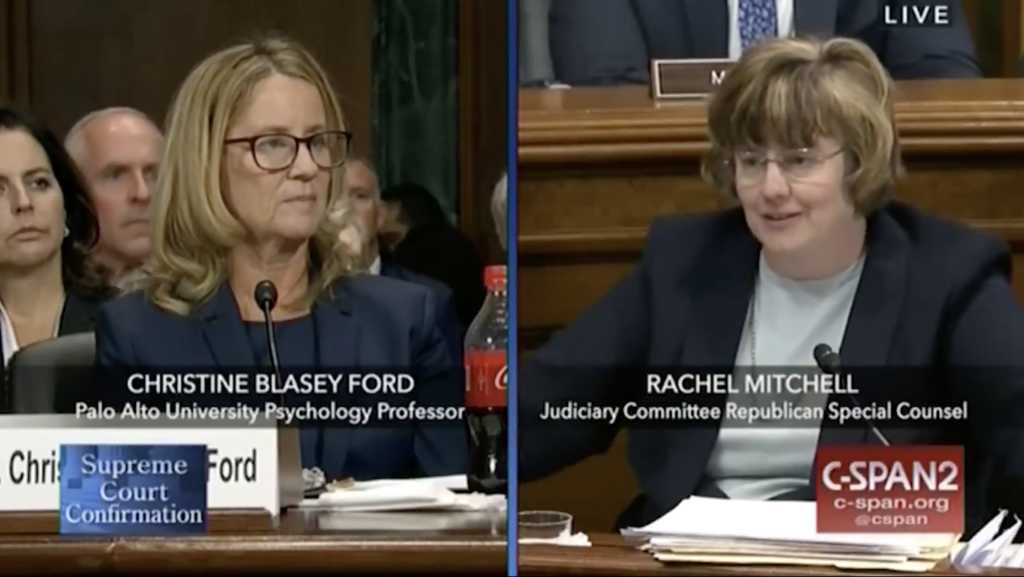Regardless of whose story is true or what party wins out, today’s Senate hearings with U.S. Supreme Court nominee Brett Kavanaugh and Dr. Christine Blasey Ford, the woman who has accused the jurist of sexual assault, have been about one thing: political expediency.
That truth, whether you’re conservative, liberal, or somewhere in between, is heartbreaking.
Ford’s experiences, whether they involved a nominee for the high court or not, should never have occurred and their ramifications certainly should not have been dealt with from a nationally televised seat in front of a panel of Democrats and Republicans.
WATCH LIVE: Kavanaugh, Ford Testify Before Senate on Sexual Assault Allegations
Despite her somewhat confusing questions and the wonky five-minute format of her inquiries, Rachel Mitchell, the independent prosecutor questioning Ford on behalf of the Republicans on the Senate Judiciary Committee, seemed to be the only one looking out for the 51-year-old college professor’s best interest.
Rachel Mitchell, the female prosecutor hired by Senate Judiciary Committee Republicans, casts serious doubt on the "five-minute increment" format pic.twitter.com/WaRzdsJ2wU
— Ryan Saavedra (@RealSaavedra) September 27, 2018
Mitchell simultaneously sympathized with the predicament in which Ford found herself and indirectly called out Democratic lawmakers for failing to put Ford’s best interest above their own political goals.
The prosecutor told Ford the “best way” to address allegations like those she presented several weeks ago — that Kavanaugh pinned her down to a bed and attempted to molest her many years ago, when they were teenagers — is to have “a trained interviewer talk to you one-on-one in a private setting and to let you do the talking.”
“That makes a lot of sense,” Ford replied.
Mitchell, hoping to make an important point, then asked Ford a question for which she already knew the answer: She asked if the offices of either Sen. Dianne Feinstein (D-Calif) or Rep. Anna Eshoo (D-Calif.) encouraged her to seek a forensic interview before taking her accusations against Kavanaugh to the public.
“No,” she responded.
Ford, it should be noted, sent a letter to Eshoo in early July. President Donald Trump nominated Kavanaugh on July 9.
Brett Kavanaugh’s Defense Against Sexual Assault Claims Stirs Heated Debate
Feinstein waited until September, after Kavanuagh had already been nominated and endured hearings over his nomination to the Supreme Court, to reveal the details of Ford’s previously confidential allegations.
But rather than deal with her allegations through appropriate counseling avenues, Mitchell noted Ford was encouraged to retain a lawyer and take a polygraph test.
“Instead of submitting to an interview in California,” Mitchell lamented, “we’re having a hearing today, in five-minute increments.”
Regardless of who “wins” or what happens with the vote to place Kavanaugh on the Supreme Court, we — as Christians — have an obligation to listen and to put victims first. There’s no way to unequivocally know the veracity of Ford’s claims or Kavanaugh’s denial, but we must be humble and gentle enough to hear each of them out, putting principle far above politics.
As James wrote in James 1:19-20, “My dear brothers and sisters, take note of this: Everyone should be quick to listen, slow to speak and slow to become angry, because human anger does not produce the righteousness that God desires.”



